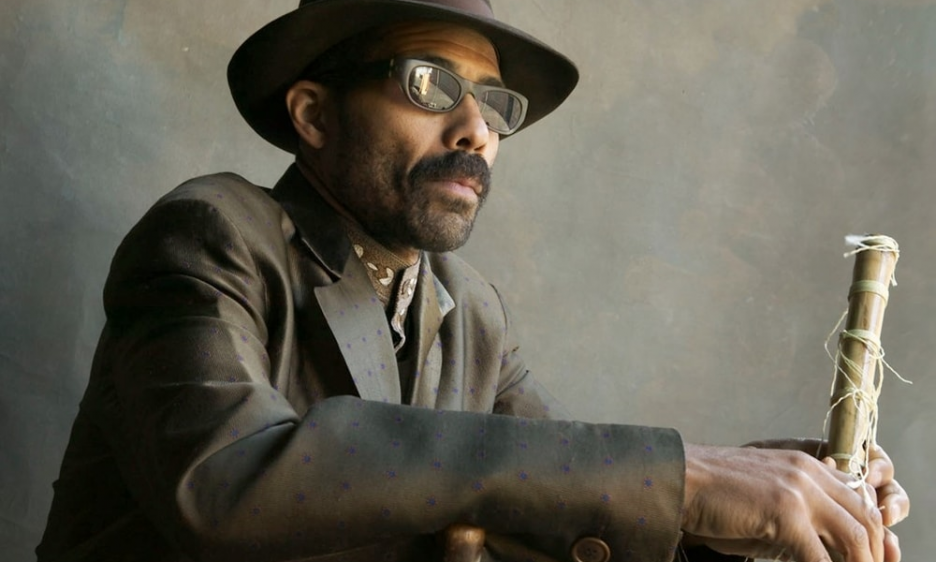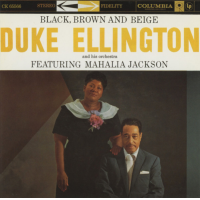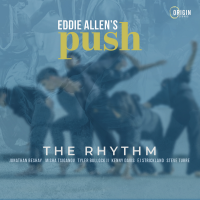Home » Jazz Articles » Interview » Kahil El'Zabar: Quiet Shaman of Spiritual Jazz
Kahil El'Zabar: Quiet Shaman of Spiritual Jazz

Dwight’s lyrics really put a thing on ‘Lonely Woman.’ He nailed it. In our society we marginalise women when they get older… It happens in music, too. When you get to my age, you’re no longer thought of as fertile. But there’s no age limit to creativity.
—Kahil El'Zabar
The Ethnic Heritage Ensemble has seen relatively few personnel changes during its long history. El'Zabar, who began a decade-long stint as chair of the Association for the Advancement of Creative Musicians (AACM) aged only 22 years, goes in for extended collaborations. Most of the musicians who have passed through the Ethnic Heritage Ensemble, and its sister group the Ritual Trio, have been longterm members. The Spirit Gatherer lineup comprises trumpeter Corey Wilkes, on board since 2007, and baritone saxophonist Alex Harding, the newbie, who joined in 2019.
On eight of the new album's eleven tracks, the core trio is joined by vocalist Dwight Trible and Don Cherry's son, the pianist and melodica player David Ornette Cherry (who has since passed). The material includes six El'Zabar originals plus five covers of legacy material which El'Zabar associates in one way or another with Don Cherry: Ornette Coleman's "Lonely Woman," the John Coltrane tweak "Sketches Of A Love Supreme," Thelonious Monk's "Well You Needn't," Pharoah Sanders's "Harvest Time" and Cherry's own "Degi-Degi."
The album is best summed up as "quietly shamanistic." Most of the time, "shamanistic" is used to describe high energy, high-decibel workouts which produce catharsis but not necessarily uplift. Spirit Gatherer, by contrast, is passionate but mostly softly spoken, its motor rhythms primal but harnessed. As El'Zabar explains below, he attributes the music's nuanced dynamics to a lesson Cherry taught him in 1982.
Chicago Born, bred and buttered
Born in 1953 in Chicago, where he still lives, El'Zabar studied philosophy and music at nearby Lake Forest College in the early 1970s. As part of his studies, he spent nine months on an exchange programme with the music department of the University of Ghana in Accra, under the tutelage of the distinguished musicologist and author Kwabena Nketia.The experience was something of a slow-burning epiphany. "One of teachers asked if I knew the blues," says El'Zabar with a chuckle. "I said, 'Yeah, I'm from Chicago.' He told me that what I was doing with Ga and Twi and Ashanti and Yoruba music was all good, but that my language was from the land that I came from. He reaffirmed Western culture as my own but that I could use my African experiences to retranslate how I express myself in music. I'd never thought about it that way before."
In 1973, El'Zabar graduated from Lake Forest, and in 1975 he became chair of the AACM, succeeding Muhal Richard Abrams, who was leaving Chicago for New York. It seems like a challenging load for a 22 year old to shoulder. Abrams had been 35 years old when he became the AACM's founding president in 1965.
"I thought it was a bit young too," El'Zabar says. "I wasn't the only candidate. What happened was the guys held a short-straw draw and I was the one who drew it. But I had shown leadership skills and I was responsible and I was pretty well educated so they thought I could do it." He proved to be an excellent chairman, steering the AACM through a hugely productive ten years.
In 1977, El'Zabar applied what he had learned in Accra to the formation of the Ethnic Heritage Ensemble, a trio with reed and woodwind players Edward Wilkerson and "Light" Henry Huff. The Ritual Trio followed not long after.
El'Zabar describes the Ethnic Heritage Ensemble as "an acoustic improvising ensemble with an African base." The Ritual Trio, with an adjoining but distinct trajectory, is rooted closer to the main stem of the jazz tradition. "It was influenced by Sonny Rollins' pianoless trios," he says. "The Ethnic Heritage Ensemble was formed to deal with the polyphonic relationship of cacophony, and I have mainly played percussion with it. The Ritual Trio deals with the pulse capabilities of cacophony, which come from swing, and there I mainly play kit drums.
"I grew up playing kit first," he continues. "My father and uncle both played kit drums. I got into percussion later. For many years, African Americans hadn't been allowed to play African percussion, it was against the law in all Southern states." In the 1960s, a growing number of African American musicians began reclaiming heritage drums and percussion.
"Taking up percussion was super exciting," says El'Zabar. "But I still had the swing element, which came from my father and my uncle. So I expressed that in the Ritual Trio, which began by examining swing sensibilities and how as a player and a composer I could translate that energy, which I considered to be ritual. In the beginning it was trumpet with Lester Bowie, then violin with Billy Bang, and then for many years it became saxophonist Ari Brown and bassist Malachi Favors."
The Ethnic Heritage Ensemble and the Ritual Trio have both been active for over forty years. The Ensemble released its first album in 1981, the Trio its in 1985. Both groups have benefited from having longstanding, stable personnel. "Relationships evolve," says El'Zabar. "Time can be an asset. With that you develop trust and the potential for telepathy."
El'Zabar feels the same about record labels. He recorded with Delmark for almost 25 years, until its founder, Bob Koester, retired in 2018. Since then he has pacted with Spiritmuse. "Delmark was purchased by two younger people who didn't seem to have interest in my explorations," he says. "I feel very secure when the label is supportive, as Delmark was under Bob Koester. He trusted me despite my fondness for going off in different directions, which I greatly appreciated."
With Spiritmuse, El'Zabar is once again free to dig deep and/or pursue new directions. "Because of my age, perhaps, I get asked a lot for retrospective music," he says. "Other labels have suggested I go back and redo things I've done before. I'm not interested. When Quincy [Jones] asked Miles Davis to redo earlier material, I don't think it did any justice to either where Miles was then nor where Miles had been before.
"So I'm apprehensive about trying to go back to ideas behind, for instance, Three Gentleman From Chicago [Ethnic Heritage Ensemble's debut album]. What we did then stands for itself. What I'm trying to with the Ethnic Heritage Ensemble now has no specific genre and no specific inspiration. It's a connection with tradition and then taking risks with reinvention and the new opportunities that presents."
Saluting the music and wisdom of Don Cherry
In the liner notes for Spirit Gatherer, El'Zabar says "I'm very thankful for knowing [Don Cherry] as a mentor and friend." In our interview, he offered this story as an example of Cherry's wisdom and influence... "One time at the Basel Jazz Festival I was with the Ethnic Heritage Ensemble and we opened up for Old and New Dreams [a group which included Cherry]. This was 1982, I think. And so I wanted to show Don how well we could play. Being a young person you're extremely competitive in your projection. Because that's all you know. 'I'm good, let me show you I'm good.'"After we performed with all our intensity, all of our cacophony, all our technical skills, Don looked at me and he winked. He said 'Watch this.' They played extremely soft, pianissimo, just a mild, mild timbre, and they destroyed everything we did with all of our intensity. That lesson brought a new sensibility to my approach. You can hear it between my younger and my older records, the importance of dynamics. I usually have small ensembles with very limited instrumentation, so without the varied dynamics you wouldn't hear much story telling. I really owe that to Don Cherry.
"But there were many other lessons. We're both Scorpios and he'd just tell me things about life, that the arts and life and society are all connected. Fashion, language, whether it's music from Colombia, music from Bangladesh, music from New York, from wherever. Those energies are all connected to a force of universal expression. I don't know anyone who did that better than Don Cherry."
El'Zabar spent the best part of a year re-immersing himself in Cherry's recordings before he began work on Spirit Gatherer. "I went back to listen to a lot of things Don did from different periods and with different ensembles," he says. "Only then did I start writing and working with the band. We wanted to tell a whole story of how he developed and expressed himself in the different styles he performed in, and we wanted our music to have relevance to what we believe Don represented as a spirit gatherer."
As he does with many of his albums, El'Zabar features tunes by other musicians along with his own compositions. "[If it's a tribute album] my intention is always to make it relevant to the story of the artist that we dedicate it to," he says. "Don Cherry said many times that his favourite composer was Monk. And 'Well You Needn't' to me has that kind of sarcastic, intelligent, infectious energy that Monk expresses so well. Sometimes you'd see Don Cherry dance and he was trying to do a dance like Monk.
"We did Ornette's 'Lonely Woman' [from Coleman's 1959 Atlantic album Shape Of Jazz To Come] partly because Miles Davis said it was one of the most brilliant solos of that time. He said if there was an original trumpet player of contemporary value to him it was Don Cherry, someone who had created their own style on the instrument. The beauty of his playing couldn't be greater than on his solo against Ornette's solo on 'Lonely Woman.' So we made Corey the lead rather than the saxophone the lead.
"We did Pharoah's 'Harvest Time' because while Don was one of those shamanistic figures in the late 1960s and 1970s, Pharoah was the guy with that. So I thought we should include a Pharoah tune in telling Don's story at that time. 'A Love Supreme' was the ultimate spiritual jazz mantra and Don Cherry was a very spiritual man and I couldn't imagine any other statement than 'A Love Supreme' because that's what we felt for Don. He brought about that same kind of energy that Coltrane so prophetically expressed, which has now spanned generations. I think in his way, Don Cherry gave a love supreme."
El'Zabar wrote the words for the other tunes Dwight Trible sings on Spirit Gatherer, but it was Trible who wrote the lyrics for "Lonely Woman." They are outstanding, evoking an image of an older, neglected woman living in poverty, and Trible's performance gives the tune a chilling undercurrent. The vibe is unlike that of any other track on the album and it is undoubtedly one of the highlights. (Check the YouTube film below).
El'Zabar agrees. "Dwight really put a thing on that tune. The fragility. Listening back, wow, he nailed it. We need to understand and we need to be sensitive to the idea of the loneliness, the beauty of women, and how in our society we don't protect them, and how society marginalises them when they get older. It happens in music, too, when you get to my age. You're no longer thought of as fertile or relevant, when actually there's no age limit to creativity."
Spirit Gatherer is proof of that, if proof were needed.
Seven Exalted Albums
El'Zabar stresses that there are a multitude of albums that are important to him. "This selection is the seven that came to my mind when I sat down to make a list yesterday," he says. "Ask me next week and at least some of them will have changed." Miles Davis
Miles Davis Sketches Of Spain
Columbia
1960
"First of all there is the sheer beauty of the music and the telepathy between Miles and Gil Evans. Then, with great art you have great study. I believe Sketches Of Spain is great art because of the great study between the two central artists. They studied the history of the music, they studied the syntax, they studied the voicings. Then they came up with something original based on those studies."
 Duke Ellington featuring Mahalia Jackson
Duke Ellington featuring Mahalia Jackson Black, Brown And Beige
Columbia
1958
"I love the reverence and metaphysical sense of presence that Mahalia Jackson always had. Duke Ellington felt she was the only voice for 'Come Sunday,' the centrepiece of the album. I also love the acceptance that spirit can come through music."
 D'Angelo
D'Angelo Voodoo
Virgin
2000
"For me, D'Angelo's early work demonstrated that the ideas of the past can be extended into new generations. The album has depth, originality, a personal voice and the acknowledgement of history. And it is extremely soulful."
 James Brown
James Brown Live At The Apollo
King
1963
"Purity. Authenticity. A vibration that celebrates life without any apologies. James Brown had that and he put it over in his music and his life. This album was one of his first and it's stayed one of his best."
 Art Ensemble Of Chicago
Art Ensemble Of Chicago A Jackson In Your House
BYG Actuel
1969
"I love the storytelling, the gathering of all kinds of what we know as 'jazz' into a narrative of genuine originality. The early Art Ensemble Of Chicago was like no other band."
 John Coltrane
John Coltrane Impressions
Impulse!
1963
"Particularly the track 'India.' People sometimes miss that the rhythm pattern that Elvin Jones sets up against the double bass lines was an early expression of funk. It embraced the idea that spirituality could be expressed in groove. This piece was a big influence on me when I was setting up the Ethnic Heritage Ensemble."
 Olatunji
Olatunji Drums Of Passion
Columbia
1960
"A noble, progressive work which showed the world the musicality, variety and range of traditional African drumming. Olatunji made the listener dance, mentally and physically. I think he nailed it."
Tags
Interview
Kahil El'Zabar
Chris May
Alex Harding
Dwight Trible
Don Cherry
David Ornette Cherry
Ornette Coleman
John Coltrane
Thelonious Monk
Pharoah Sanders
Muhal Richard Abrams
Edward Wilkerson
"Light" Henry Huff
Sonny Rollins
Lester Bowie
Billy Bang
Ari Brown
Malachi Favors
Miles Davis
Old & New Dreams
Gil Evans
Mahalia Jackson
duke ellington
Art Ensemble of Chicago
Elvin Jones
Olatunji
PREVIOUS / NEXT
Kahil El'Zabar Concerts
Feb
13
Fri
Stream
Support All About Jazz
 All About Jazz has been a pillar of jazz since 1995, championing it as an art form and, more importantly, supporting the musicians who make it. Our enduring commitment has made "AAJ" one of the most culturally important websites of its kind, read by hundreds of thousands of fans, musicians and industry figures every month.
All About Jazz has been a pillar of jazz since 1995, championing it as an art form and, more importantly, supporting the musicians who make it. Our enduring commitment has made "AAJ" one of the most culturally important websites of its kind, read by hundreds of thousands of fans, musicians and industry figures every month.


























